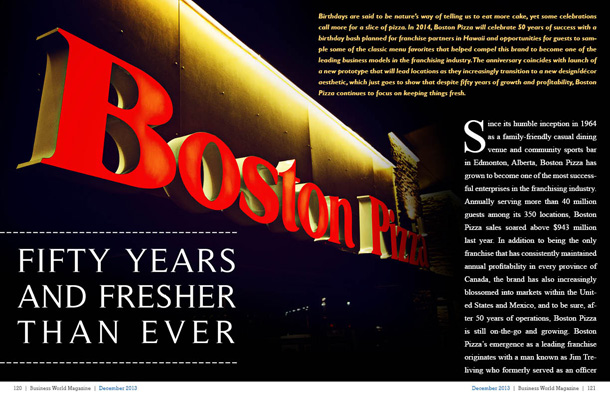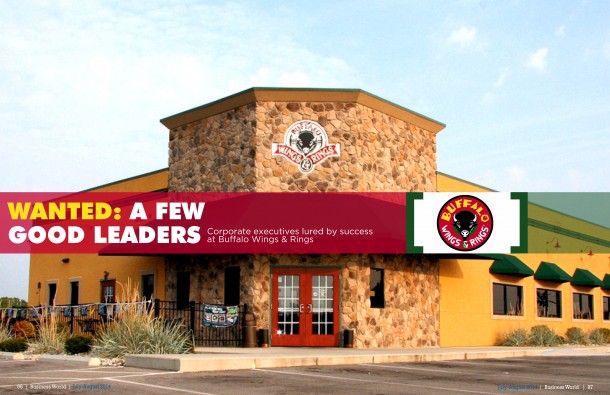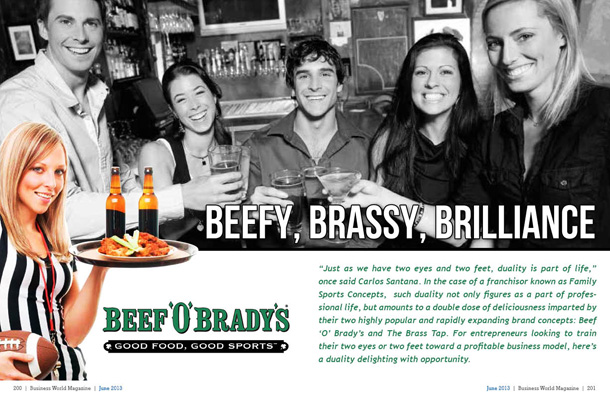A Spirit of Cooperation

The Franchise Council of Australia (FCA) offers many things to its members. It hosts events, conferences and breakfasts. It contains an online directory of franchise businesses. They provide a free subscription to the Franchise Review, a member’s only magazine. In general, they also fight to enhance public perception of franchising, help to safeguard the investments of franchisors and franchisees both, and protect franchise networks from unfair or unethical attach. According to Executive Director Steve Wright, however, their most valuable service is simply providing a meeting place. In that, they’re encouraging a spirit of cooperation in the franchise world, and promoting a platform for members to exchange ideas and voice concerns internally.
“We provide the meeting place for everybody in the sector,” Wright says. In doing this, the FCA ensures that their members are all up to date on the latest developments, research and innovation. “Likeminded business people – whether they are franchisees, franchisors or suppliers – can literally get together to trade ideas and form partnerships, alliances or arrangements. For our members, we do that at an advantageous price.”
The FCA is the peak representative body for franchising in Australia, and represents franchisees, franchisors and service providers to the franchising sector. “It’s a body that’s all about creating the best operating environment for franchise business in Australia, and constantly striving to lift standards across the sector,” says Wright. The Council was formed in 1983 as a not-for-profit trade association. “Franchising is a fairly young industry, and it was realized there certain characteristics about franchising which were quite different to a lot of other business models,” he says, recounting the FCA’s origins. “The people who were kicking it off realized pretty promptly that it would be worthwhile for them to get together and work out amongst themselves how to establish best practice in franchising for the interests of everybody involved.” After this formation, the FCA had three primary objectives: to establish standards of best practice for Australian franchise systems, to provide education about franchising to existing or potential participants, and to educate state and federal governments on issues relevant to the sector.
Franchising, in addition to being new, is not a static model – in fact, it is constantly changing. Wright recalls having dinner with Peter Ritchie, the former CEO of McDonalds Australia. At the dinner, Ritchie was asked how he thought franchise businesses today were performing in comparison to McDonalds when he was in charge, considering that McDonalds had probably perfected the system. According to Wright, Ritchie said that you would be wrong to assume McDonalds had perfected the franchising model, and that even he himself would find it difficult to get back up to speed in the business, it would have changed so much. “His message was if you don’t change and constantly review the way you operate, you are likely to fall victim to competition or other forces which undermine your organisational effectiveness and profitability”. This is why the FCA is so important – they bring brands together and give them opportunities to ensure they are up to date with the latest techniques and trends, as well as all the potentially complex laws and regulations which apply.
And when it comes to lobbying for regulatory change, the FCA has a well defined strategy. “We encourage governments to adopt a sensible, constructive, but light-touch approach. That’s what seems to have worked best over the years.” Wright says that franchises in Australia are already operating from a very good base – maybe even the best in the world. “I’d be happy to debate that with anyone from the United States or anywhere else,” he says. “In Australia we have one national set of rules, that’s it. In the United States there are 18 state franchising acts. That means for a national operator in the US, there are 18 sets of regulatory compliances they have to carry out. That’s not what you call efficient.” Additionally, he says the United States has no mechanism for dispute resolution, and as a result, court cases are more common than they are in Australia. In Australia, Wright says, there exists a “beautiful combination of essential requirements for basic relationship management, for disclosure of information, and for dispute resolution.”
The FCA has been very successful in dealing with the government, which Wright says has spent the last few years maturing its understanding of the way the franchising sector contributes to the national economy. “This mean they are more cautious about making changes for changes sake,” he says. Recently, the federal government denied a South Australian push for state-based franchising regulation, something Wright considers a massive victory. “That got a spontaneous bit of applause at our national convention. It’s a very encouraging state of affairs.”
However, as much of a success as dodging that bullet was, Wright admits that “avoiding regulation is not why franchise business owners get out of bed in the morning.” A more relevant success measure, he says, is the fact that the franchising market has consistently outperformed the small business market for more than a decade. “That’s the true measure of success, that people are consistently drawn to franchising, even in times of economic downturn.” In fact, during the GFC, many franchises in Australia maintained heavy growth and turnover, as well as sustained profitability amongst franchisees. “There are very few industries that can claim that,” says Wright.
The biggest impact the GFC had on Australia, according to Wright, was actually in how it decreased investor confidence. “People, as investors, are much more wary. They are thinking harder about investing in business opportunities. The biggest challenge is: how do you sustain the growth in your sector when it’s becoming increasingly difficult to find new franchisees?” Wright says that their member companies are consistently reporting having difficulty attracting new franchisees, even as they handily maintain the operational strength of their brands, and the attractive of those brands to customers. “Closely related to that,” Wright says, “is that because of the financial crisis, getting funding from banks has become much more difficult.” This means new ventures are finding it challenging to amass enough capital to get their feet off the ground. “Those are the dual headline challenges for franchises in Australia,” Wright says, but also notes that the problem is not unique to Australia – most franchising operations around the world are experiencing the same issues.
Currently, Wright and the FCA are lobbying the government to help stimulate investment in franchise businesses. “I think there’s the potential opportunity for an acceleration of return to confidence in the small business area,” he says. “We just need governments to consider how to encourage new investment into successful business like franchises. Not stabs in the dark, but encouraging investment through established proven concept that could see us get back into full swing more quickly than would otherwise be the case.”
Another current initiative of the FCA’s is encouraging a more cooperative approach between landlords and tenants in shopping centres. What is happening, Wright explains, is that when retail business is down, landlords react by squeezing their tenants. “This can have a double whammy effect on the tenants,” Wright says. “Rather than working in unison, one is actually making the situation worse for the other and not better. And we’d like to see tenants more actively considered by landlords so as to ensure their long-term tenant loyalty.” Wright points to the United States, where are a lot of shopping malls contending with empty stores. “That’s something the landlords want to avoid, but the best chance of doing that is acting more sensitively and cooperatively with their tenants who are under the same pressure they are.” The FCA’s answer to this problem is a franchising code that regulates the landlord-tenant relationship, without setting prices or interfering commercially.”There are six different leasing laws throughout the country,” Wright says. “And that’s inefficient. If we integrate our code into the leasing agreement, it could result in fewer arguments between landlords and tenants. The real beneficiaries of this code will be franchisees and landlords. It will give the landlords greater confidence that they’ll have loyal tenants into the future, and it’ll give the franchisees greater confidence that they are not going to become victims of difficult economic times where a landlord is forced to behave in an aggressive way, which makes life harder for them.”
That is one of a number of initiatives the FCA has cooking. They are also seeking to encourage indigenous and ex-military ownership of franchises as well. At any one time, the FCA is working on many things, and offering many things to its members – whether it’s a newsletter, a unified voice for the government, or most valuable of all, a meeting place.








